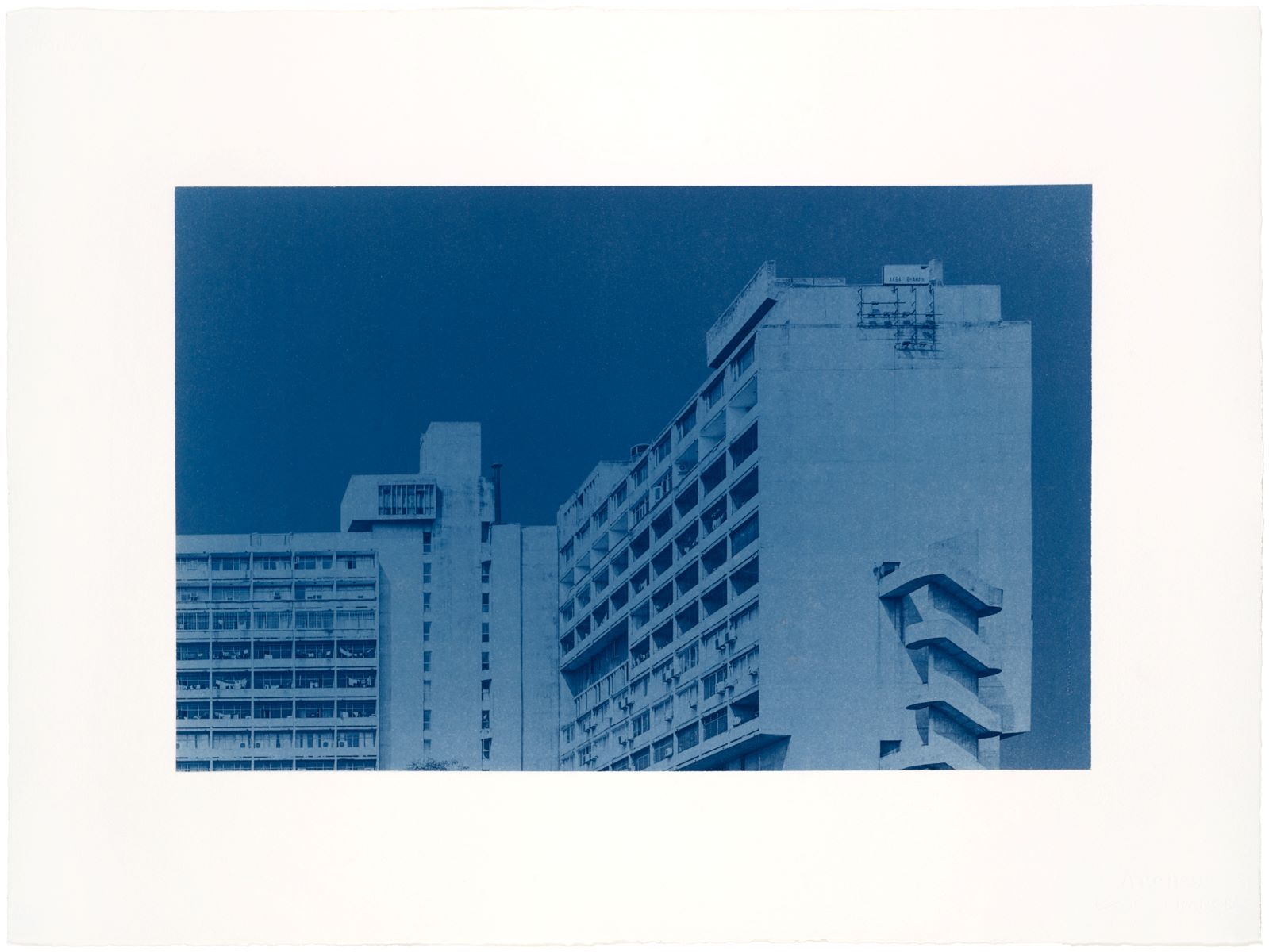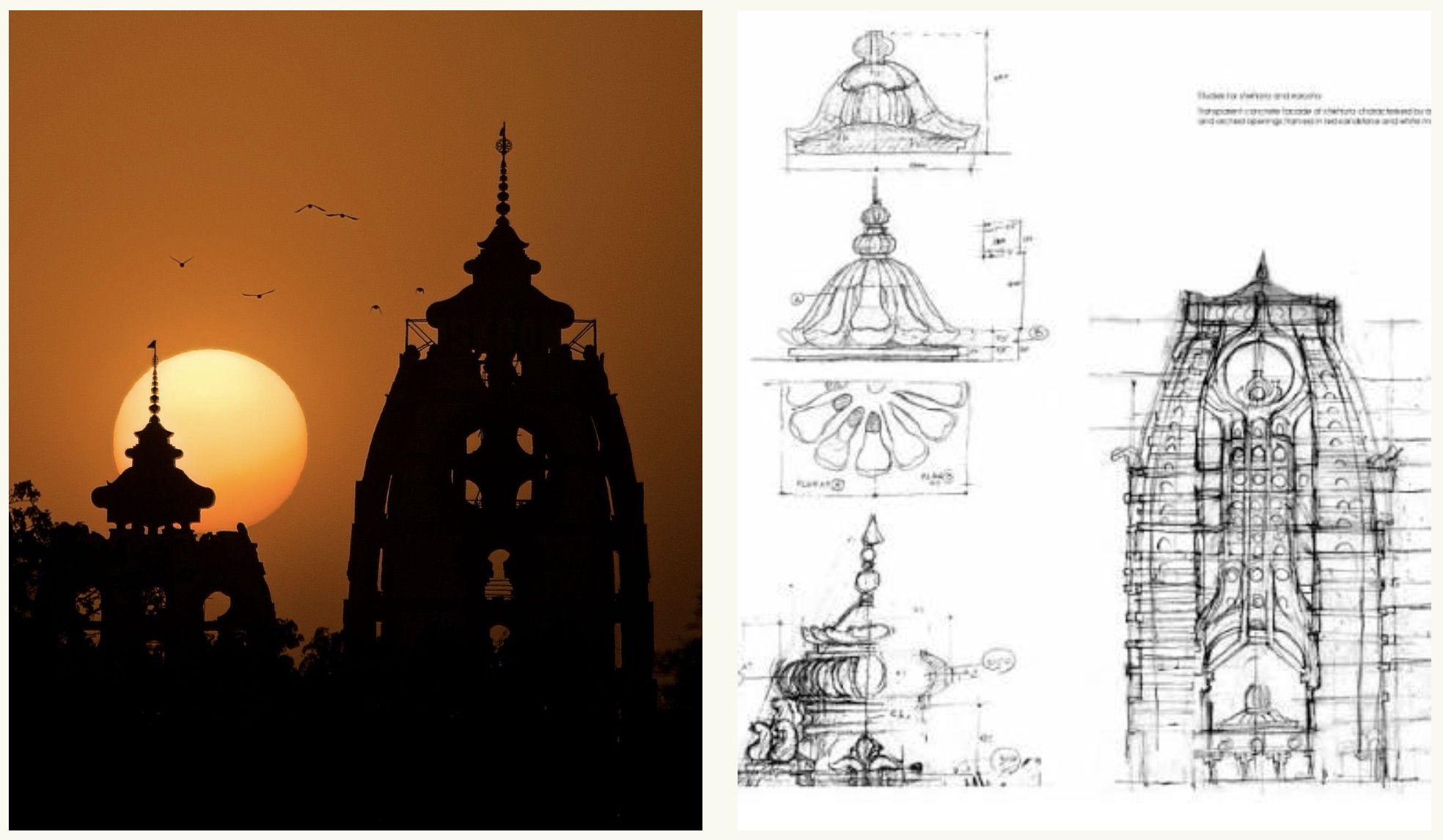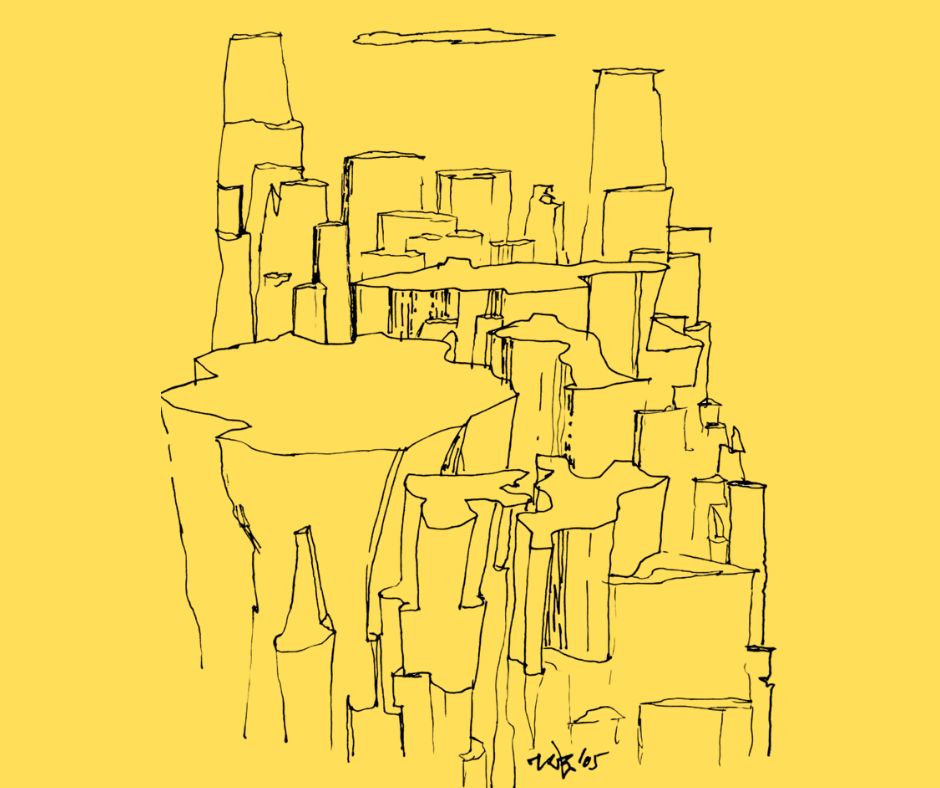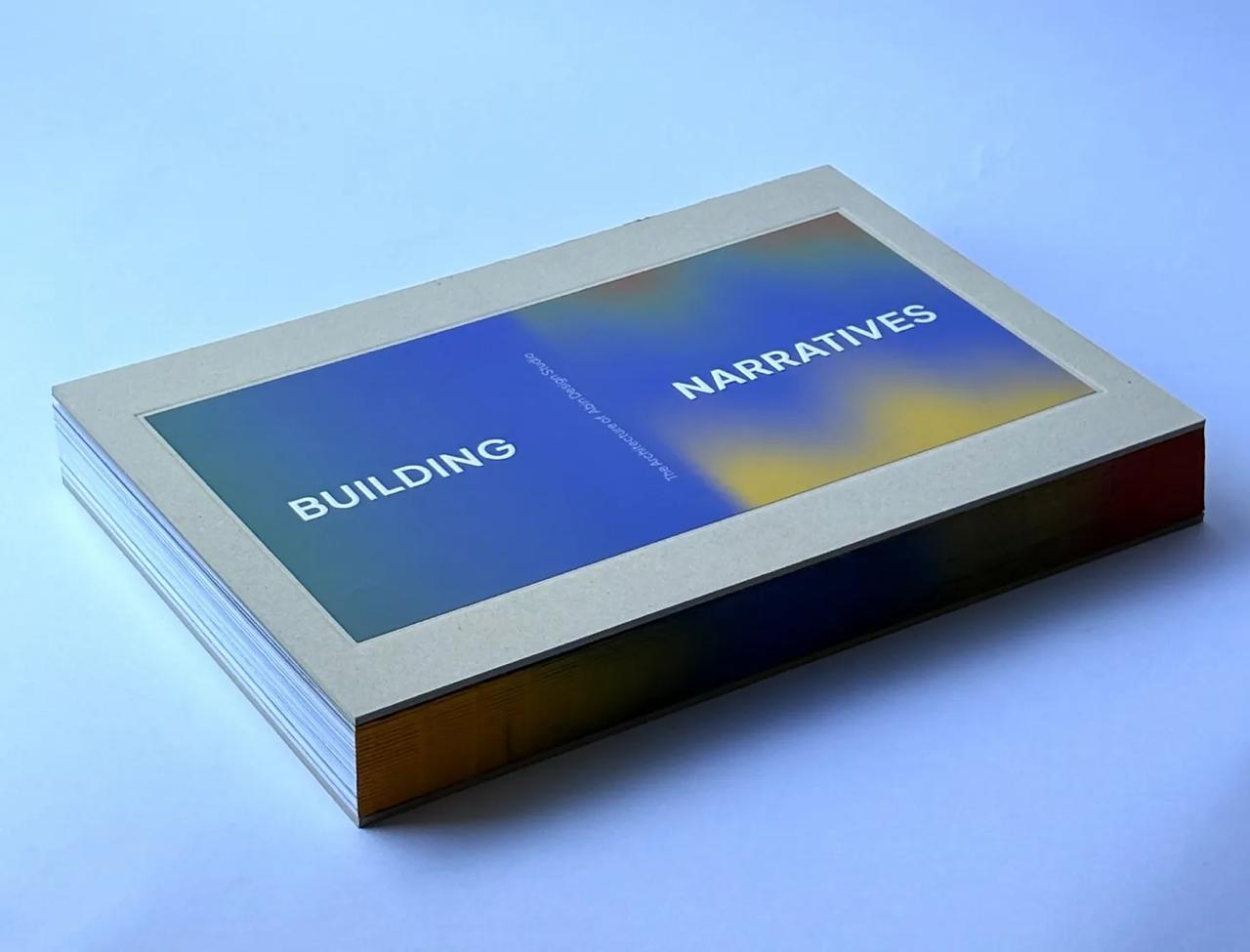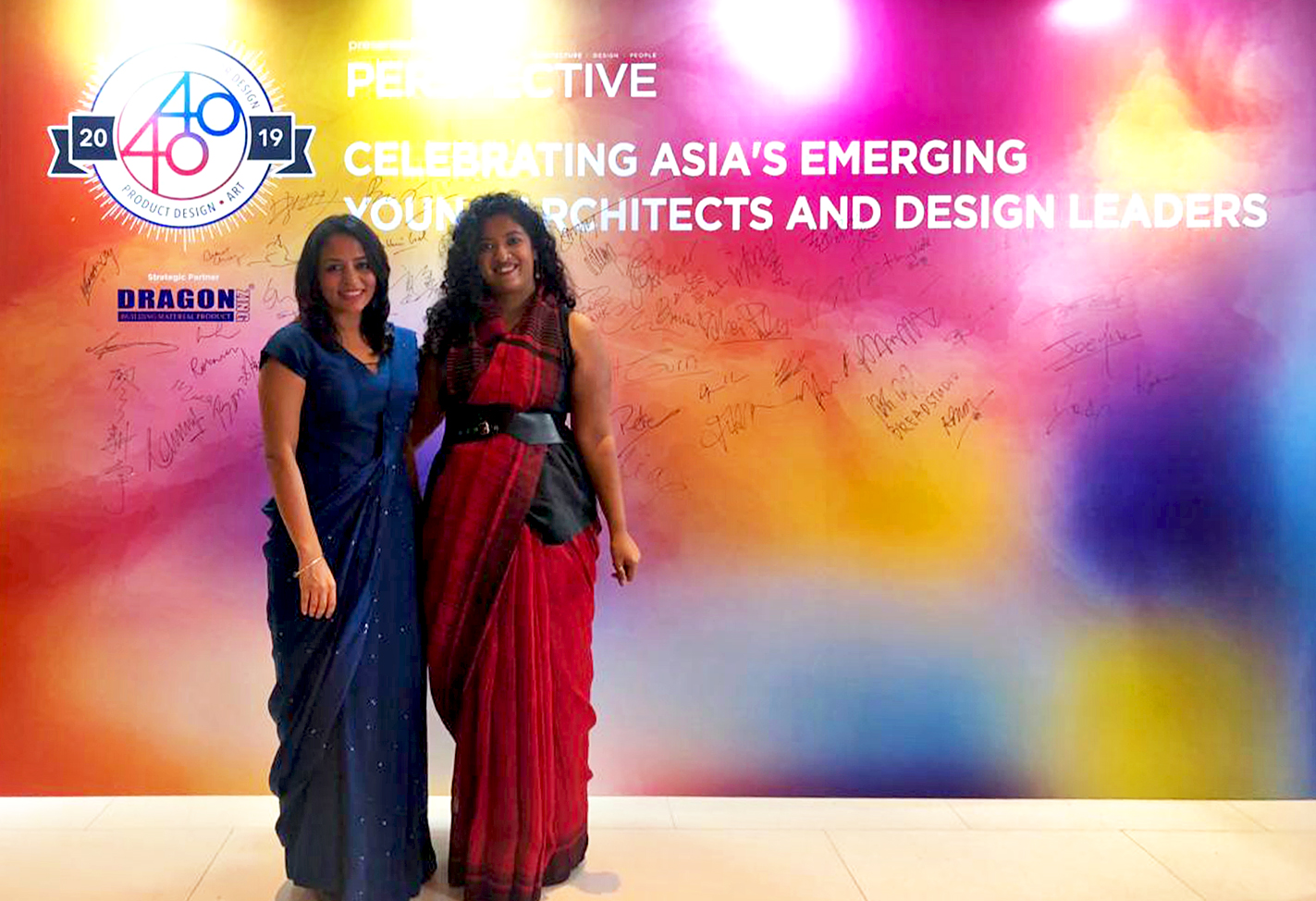 Pankhuri Goel and Asha Sairam – Design Principals at New Delhi based multi- disciplinary design firm, Studio Lotus – were felicitated at the Perspective 40 under 40 Awards 2019 (Hong Kong) in the Interior Design Category. Youngest of the 5 Design principals at the firm, both the recipients have spearheaded several marquee projects for the practice, which has been instrumental in strengthening the position that Studio Lotus enjoys today.
Pankhuri Goel and Asha Sairam – Design Principals at New Delhi based multi- disciplinary design firm, Studio Lotus – were felicitated at the Perspective 40 under 40 Awards 2019 (Hong Kong) in the Interior Design Category. Youngest of the 5 Design principals at the firm, both the recipients have spearheaded several marquee projects for the practice, which has been instrumental in strengthening the position that Studio Lotus enjoys today.
The Perspective 40 Under 40 Awards 2019 marked the 13th consecutive year of recognising 40 young design talents from the fields of art, architecture, interior design and product design who are set to lead the future of design in Asia-Pacific. This year’s event was attended by more than 200 industry professionals, including acclaimed architects, interior and product designers, artists, thought leaders and business influencers.
Asha Sairam and Pankhuri Goel | Design Principals at Studio Lotus, India
Asha Sairam and Pankhuri Goel are two of five Design Principals at Studio Lotus, a multidisciplinary design practice based in New Delhi, India. They lead the studio’s Interior Design vertical, guiding a team of 25 architects and designers.
Asha Sairam worked in set design and graphic design before joining Studio Lotus in 2010. Today, she’s the youngest Design Principal at the practice, leading its initiatives in Hospitality Interiors and Experiential Design. Masti Cocktails & Cuisine, Studio Lotus’ first international F&B project, was designed under her leadership; the concept restaurant in Dubai went on to win a Special Prize at the prestigious Prix Versailles in 2018. A series of sensitive interventions at RAAS Devigarh, a heritage hotel in Udaipur, India, cites a more recent example of Sairam’s acute sense of the interdependence of design and business; the transformation has resulted in the hotel nearly doubling its F&B revenue and increasing its visitor footfall by 30 percent.
Pankhuri Goel has previously worked on the design of museums, public spaces, and installations; she currently leads Studio Lotus’ Retail Design and Adaptive Re-Use initiatives. Imagine Studio, a marketing centre for Godrej
Properties Ltd. designed under her leadership, is one of the firm’s most critically-acclaimed projects (The Architectural Review; Domus India) Located at a 20th-century industrial campus in Mumbai, India, the project transformed and repurposed a cluster of non-descript, industrial buildings and their surrounding landscape, presenting an archetype for urbanism that is rooted in history, but simultaneously a lodestar for the future. Goel’s expertise in Retail Design comes to the forefront with her work for Royal Enfield, India’s oldest motorcycle brand, where she conceptualised the reinvention of the brand’s visual identity for 300 stores across the globe. Today, she engages actively with New Delhi’s academic community, mentoring students at two design schools in the city.
About Studio Lotus
Studio Lotus is multi-disciplinary design practice founded in 2002 – seventeen years later, it is one of the most path-breaking design firms in India, with Ambrish Arora, Ankur Choksi, Sidhartha Talwar, Pankhuri Goel and Asha Sairam at the helm as Design Principals. Fostered with a culture of learning and intra-preneurship, the work of the practice is grounded on the principles of Conscious Design, an approach that celebrates local resources, cultural influences, an inclusive process and a keen attention to detail.


